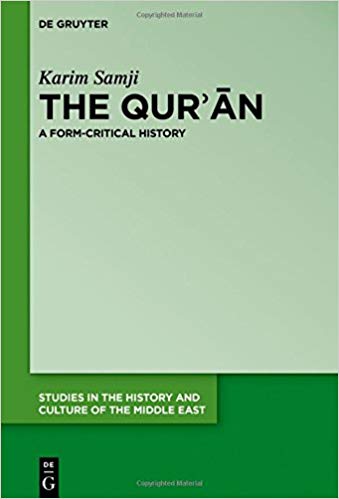In the latest installment of the Review of Qur’anic Research (Vol. 5, no.1), Devin Stewart (Emory University) reviews Karim Samji’s The Qur’ān: A Form-Critical History (Berlin: De Gruyter, 2018).

In his review, Stewart writes “The urge to provide an inventory of the types of speech included in the Qurʾān is an old one. As Karim Samji points out, in one passage of his famous Qurʾān commentary Jāmiʿ al-bayān ʿan taʾwīl āy al-Qurʾān, Muḥammad b. Jarīr al-Ṭabarī (d. 310/923) interprets the seven “letters” (aḥruf) in which the Qurʾān was revealed as seven types of speech contained in the sacred text: command (amr), rebuke (zajr), exhortation (targhīb), admonition (tarhīb), debate (jadal), narrative (qaṣaṣ), and parable (mathal) (270). However, this urge has not been met with sustained interest and methodical investigation on the part of modern scholars in Qurʾānic Studies. Karim Samji’s The Qurʾān: A Form-Critical Historyis therefore an important contribution to Qurʾānic Studies, the first attempt to apply biblical form criticism to the Qurʾān in a sustained manner to provide an overview of the main genres contained in Islam’s sacred text…”
Want to read more? For full access to the Review of Qur’anic Research (RQR), members can log in HERE. Not an IQSA member? Join today to enjoy RQR and additional member benefits!
© International Qur’anic Studies Association, 2019. All rights reserved.
